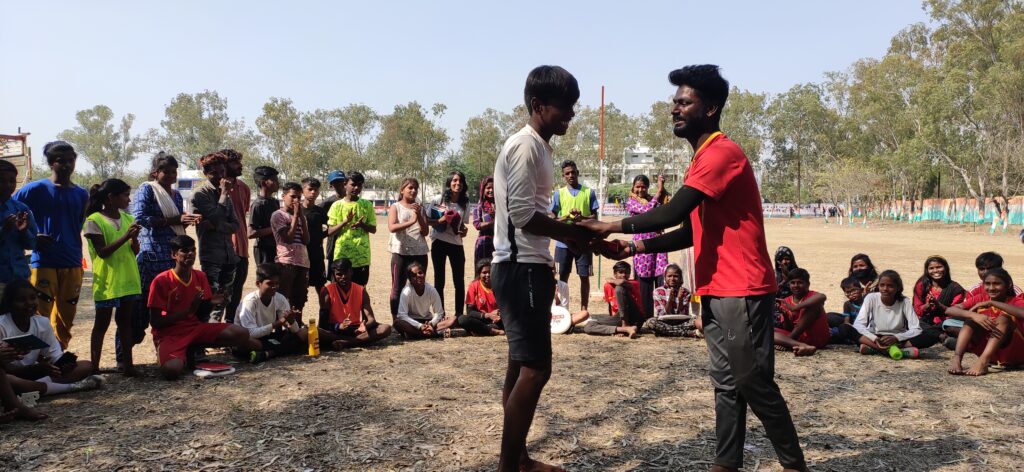Building
EMOTIONAL
INTELLIGENCE
through
Sports
Who we are
We are a Non-Profit Organisation aiming to build Emotional Intelligence through the sport of Ultimate Frisbee in children and young people of all genders living in vulnerable settings. We are based in Jabalpur Madhya Pradesh and work with slums and rural pockets around it.
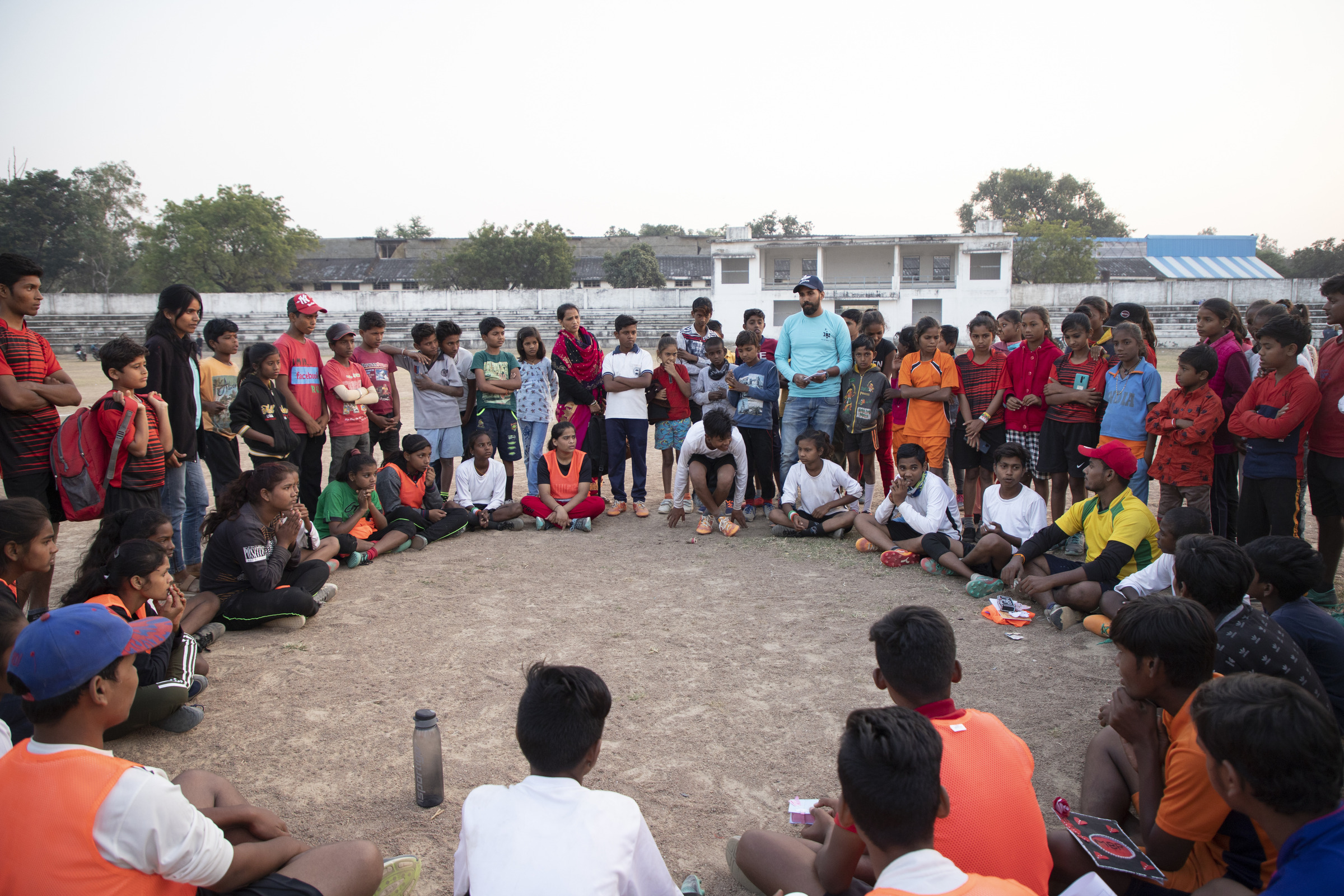
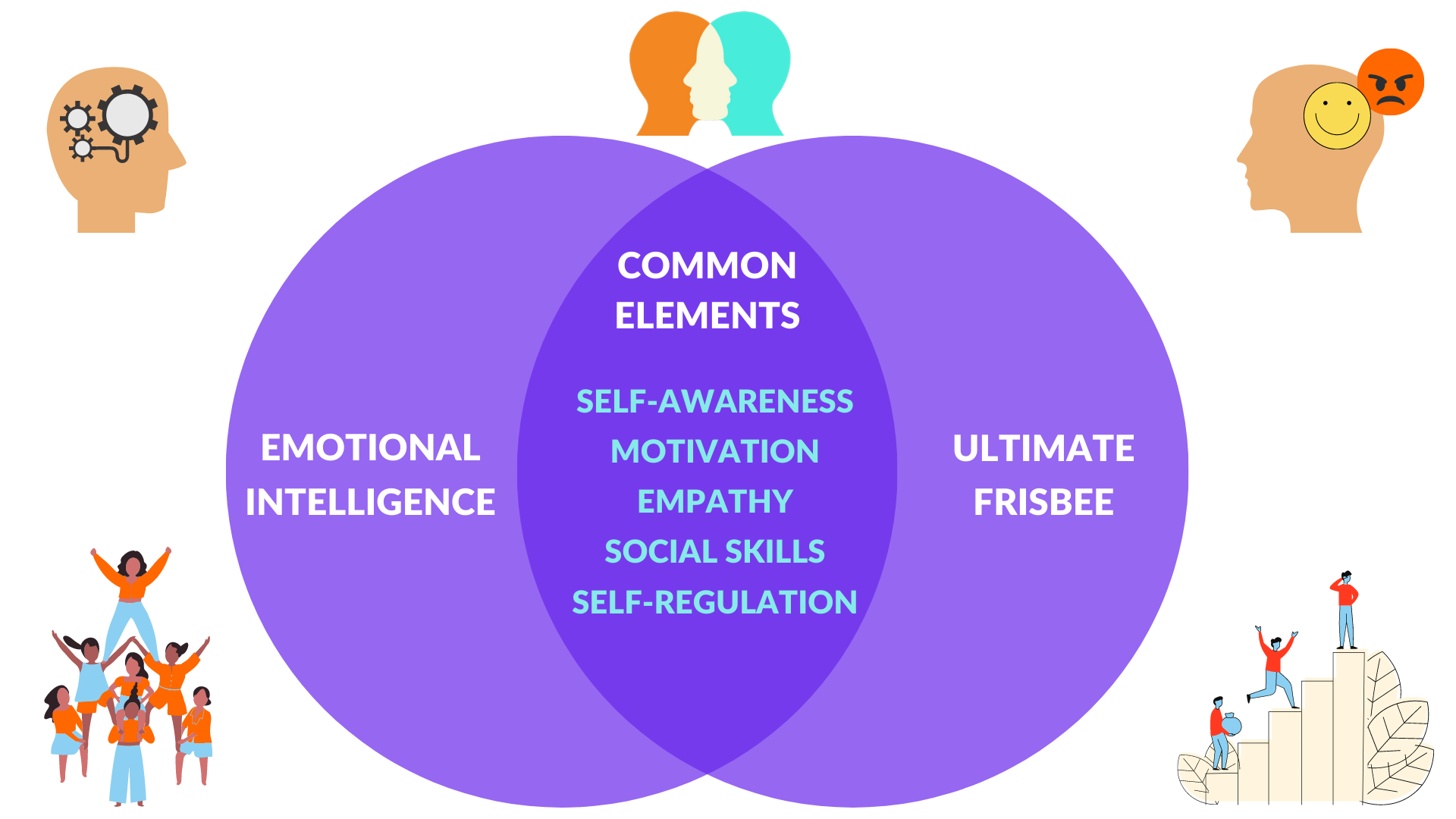
What we do
We enable the development of Self-Awareness, Empathy, Social Skills, Self-Regulation & Self-Motivation in people of all genders, mainly through the sport of Ultimate Frisbee, as it enforces the same elements of Emotional-Intelligence.
- Emotional awareness: recognizing one’s emotions and their effects;
- Accurate self-assessment: knowing one’s strengths and limits;
- Self-confidence: sureness about one’s self-worth and capabilities;
- Self-discovery: knowing one’s likes, dislikes, fear and all those things that make you unique;
Self-awareness is a critical emotional intelligence skill. Beyond just recognizing your emotions, however, is being aware of the effect of your actions, moods, and emotions on other people. People who possess self-awareness are confident in themselves and their abilities and are aware of how other people perceive them.
- Achievement driven: striving to improve or meet a standard of excellence;
- Commitment: aligning and following through with the goals set;
- Initiative: eagerness to act on opportunities;
- Optimism: Persistence in pursuing goals despite obstacles and setbacks;
- Growth Mindset: believing that their most basic abilities can be developed through dedication and hard work;
Intrinsic motivation is another important emotional intelligence skill. People who are emotionally intelligent are motivated by things beyond external rewards. Those who are competent in this area tend to be action-oriented. They set goals, have a high need for achievement, and are always looking for ways to do better. They also tend to be very committed and are good at taking initiative.
- Self-control: managing disruptive emotions and impulses;
- Trustworthiness: maintaining standards of honesty and integrity;
- Conscientiousness: taking responsibility for personal performance;
- Adaptability: flexibility in handling change;
- Innovativeness: being comfortable with and open to new ideas and information;
Self-regulation is all about expressing your emotions appropriately. Those who are skilled in self-regulation tend to be flexible and adapt well to change. They are also good at managing conflict and diffusing tense or difficult situations. They are thoughtful about how they influence others, and they take responsibility for their own actions.
- Sensing others: feelings and perspective, and taking an active interest in their concerns;
- Understanding the challenges of others: being aware that not everyone has the same capacity to deal with certain issues which may be trivial or easy for you;
- Supporting others: anticipating, recognizing, and meeting others needs;
- Group Awareness: reading a group’s emotional currents and power relationships;
- Respecting diversity: respecting the traditions and cultures of other people;
- Influence: using effective tactics for persuasion;
- Communication: active listening and sending a clear, non-violent message or signal to others;
- Leadership: inspiring and guiding groups and people;
- Change catalyst: initiating or managing change;
- Conflict management: negotiating and resolving disagreements;
- Building bonds: building and nurturing healthy relationships;
- Collaboration and cooperation: working with others toward shared goals;
- Team capabilities: able to work in a team or group to achieve collective goals;
Being able to interact well with others is absolutely crucial to emotional intelligence. These social skills allow people to build meaningful relationships with other people.
- Emotional awareness: recognizing one’s emotions and their effects;
- Accurate self-assessment: knowing one’s strengths and limits;
- Self-confidence: sureness about one’s self-worth and capabilities;
- Self-discovery: knowing one’s likes, dislikes, fear and all those things that make you unique;
Self-awareness is a critical emotional intelligence skill. Beyond just recognizing your emotions, however, is being aware of the effect of your actions, moods, and emotions on other people. People who possess self-awareness are confident in themselves and their abilities and are aware of how other people perceive them.
- Self-control: managing disruptive emotions and impulses;
- Trustworthiness: maintaining standards of honesty and integrity;
- Conscientiousness: taking responsibility for personal performance;
- Adaptability: flexibility in handling change;
- Innovativeness: being comfortable with and open to new ideas and information;
Self-regulation is all about expressing your emotions appropriately. Those who are skilled in self-regulation tend to be flexible and adapt well to change. They are also good at managing conflict and diffusing tense or difficult situations. They are thoughtful about how they influence others, and they take responsibility for their own actions.
- Achievement driven: striving to improve or meet a standard of excellence;
- Commitment: aligning and following through with the goals set;
- Initiative: eagerness to act on opportunities;
- Optimism: Persistence in pursuing goals despite obstacles and setbacks;
- Growth Mindset: believing that their most basic abilities can be developed through dedication and hard work;
Intrinsic motivation is another important emotional intelligence skill. People who are emotionally intelligent are motivated by things beyond external rewards. Those who are competent in this area tend to be action-oriented. They set goals, have a high need for achievement, and are always looking for ways to do better. They also tend to be very committed and are good at taking initiative.
- Sensing others: feelings and perspective, and taking an active interest in their concerns;
- Understanding the challenges of others: being aware that not everyone has the same capacity to deal with certain issues which may be trivial or easy for you;
- Supporting others: anticipating, recognizing, and meeting others needs;
- Group Awareness: reading a group’s emotional currents and power relationships;
- Respecting diversity: respecting the traditions and cultures of other people;
- Influence: using effective tactics for persuasion;
- Communication: active listening and sending a clear, non-violent message or signal to others;
- Leadership: inspiring and guiding groups and people;
- Change catalyst: initiating or managing change;
- Conflict management: negotiating and resolving disagreements;
- Building bonds: building and nurturing healthy relationships;
- Collaboration and cooperation: working with others toward shared goals;
- Team capabilities: able to work in a team or group to achieve collective goals;
Being able to interact well with others is absolutely crucial to emotional intelligence. These social skills allow people to build meaningful relationships with other people.
Why we do
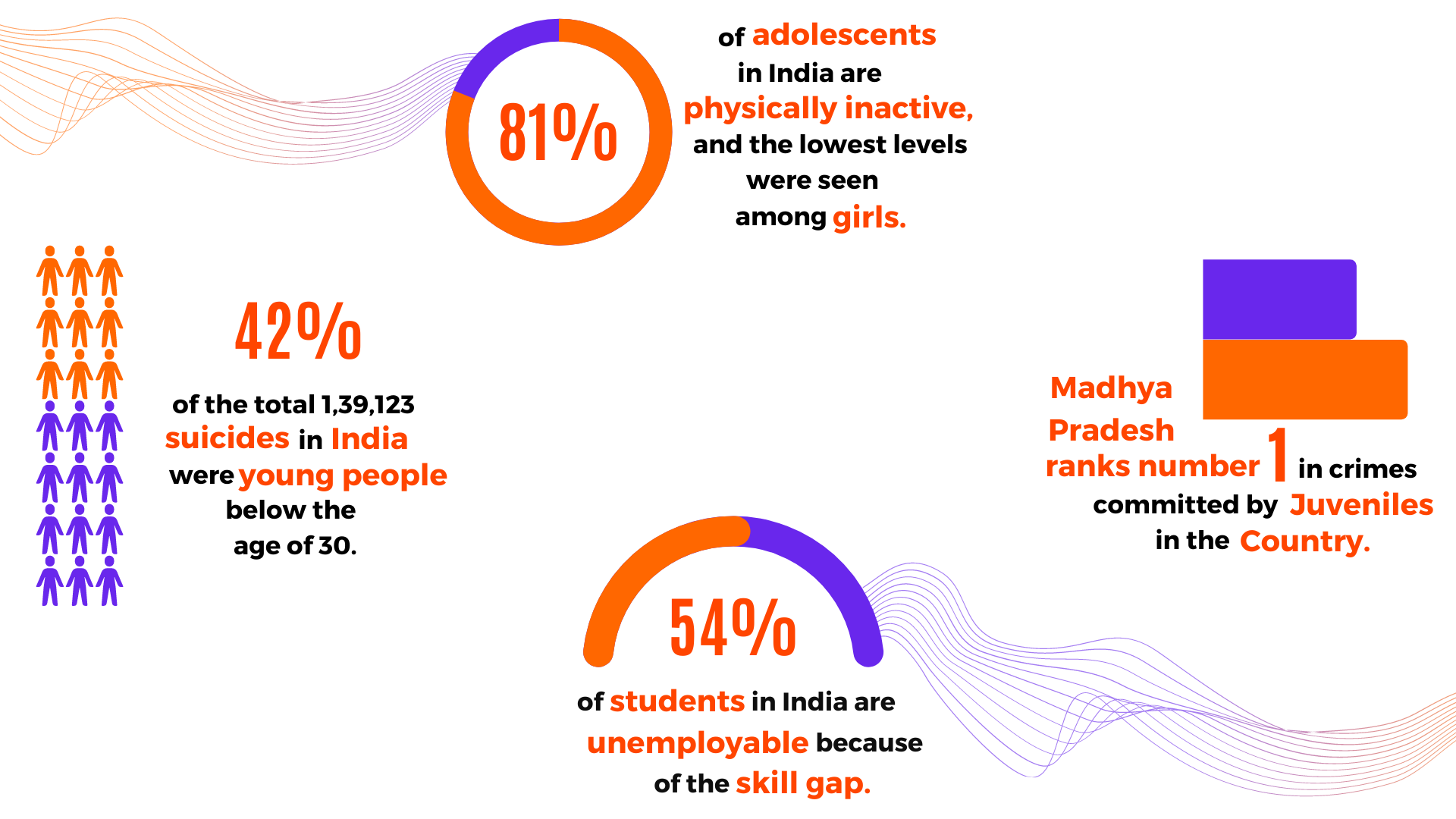
- The environment in which a child grows hugely influences their habits and overall development. Apart from the physical environment, it includes everyone they interact with daily. e.g. Parents, Peers, Youth, Community, School & Media.
- If the people around have habits and behaviour like addiction to alcohol, tobacco, drugs, crime, violence, smartphone addiction, physical inactivity, discrimination, hatred, dropping out of school & suicides. Then they are more likely to be negatively impacted by it, adopt these harmful habits and have a lesser chance of succeeding in life.
- Children living in poverty have to deal with additional problems where they have to work to support their families because of financial reasons. They may have to leave their education in between, and even if they complete their education, they lack the skills required to get a job and succeed in it.
- In this scenario, Positive Environment and Social-Emotional Skills becomes vital to deal with these problems, but where access to quality education is a concern, social and emotional learning becomes a luxury.
SOCIAL AND EMOTIONAL LEARNING
- Social-Emotional Skills helps both children and adults deal with everyday challenges, from problem-solving to self-discipline, from impulse control to self-management, from intrinsic motivation to responsible decision making and more.
- The best part is that these skills can be developed through Social and Emotional Learning (SEL).
- In the long run, greater social and emotional competence can increase the likelihood of completing education, success in career, positive relationships with family and at work, better mental health, reduced criminal behaviour, and a socially responsible citizen.
HOW WE DO
L.E.A.P PROGRAMME

- We implement different activities of social and emotional learning at our LEAP center. The center is a space for children to learn, experiment, express, and grow themselves.
- The facilitator and children try to co-create an environment that fosters belongingness, empathy, non-violence and mutual respect.
- We work with their ecosystems – their parents, peers, community, and local institutions to ensure they act as a network of support and encouragement.
- We take the children to different tournaments, so they can apply, test and improve their social and emotional skills in a new and challenging setting.
- We also take them for exposure visits to different places to learn about history, culture & traditions and to gain a different perspective.

- We deliver our activities through the experiential learning process where the child first does the activity then thinks and analyses how he/she did that activity. He/She then learns to rectify his/her mistake. Then finally applies those learnings in their life.
- In this entire process, the facilitator supports the child at every step by encouraging & giving positive constructive feedback.
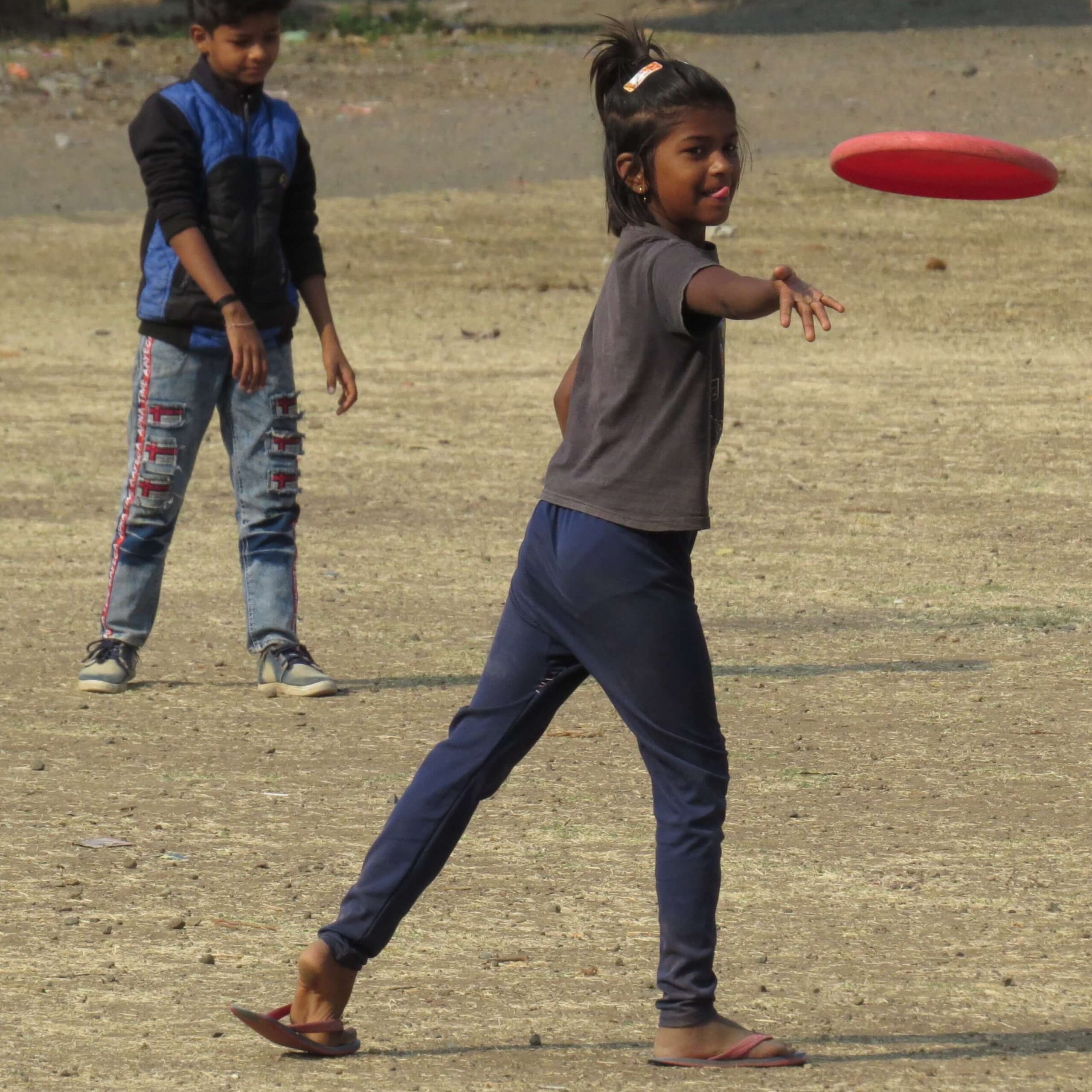
WHY ULTIMATE
Ultimate is a non-contact, self-refereed team sport played with a flying disc called Frisbee. It is unique mainly because of the “Mixed Gender” Format – both boys and girls are in the same team, and the “Spirit of the Game” – the principles of fair play, sportsmanship, and the joy of playing.
The Spirit of the Game demands players to showcase their best behaviour while being highly competitive, & as a result, it pushes players to build Character & Imbibe Values like Ethics, Mutual Respect, Non-Violence & Inclusivity. This helps in building Self-Regulation, Empathy, Self-Awareness, Communication, Conflict Resolution, Team Work and Leadership Skills.
Ultimate transcends race, religion, language, gender and is the perfect prototype for children to develop themselves and build a more equitable world.
We use the sport to develop skills and values which are not just limited to the game but are even more vital in their life.
Other Activities
English is now a necessary language to access information, learn new things over the internet, and connect with different people in this new world.
Our curriculum focuses on helping the child practice sentences that they use in their everyday life. They feel interested and comfortable speaking the new language because of it. They don’t have to memorize too much, and as a result, it doesn’t become a burden for them. We use role-plays and different games to make the class engaging and fun.
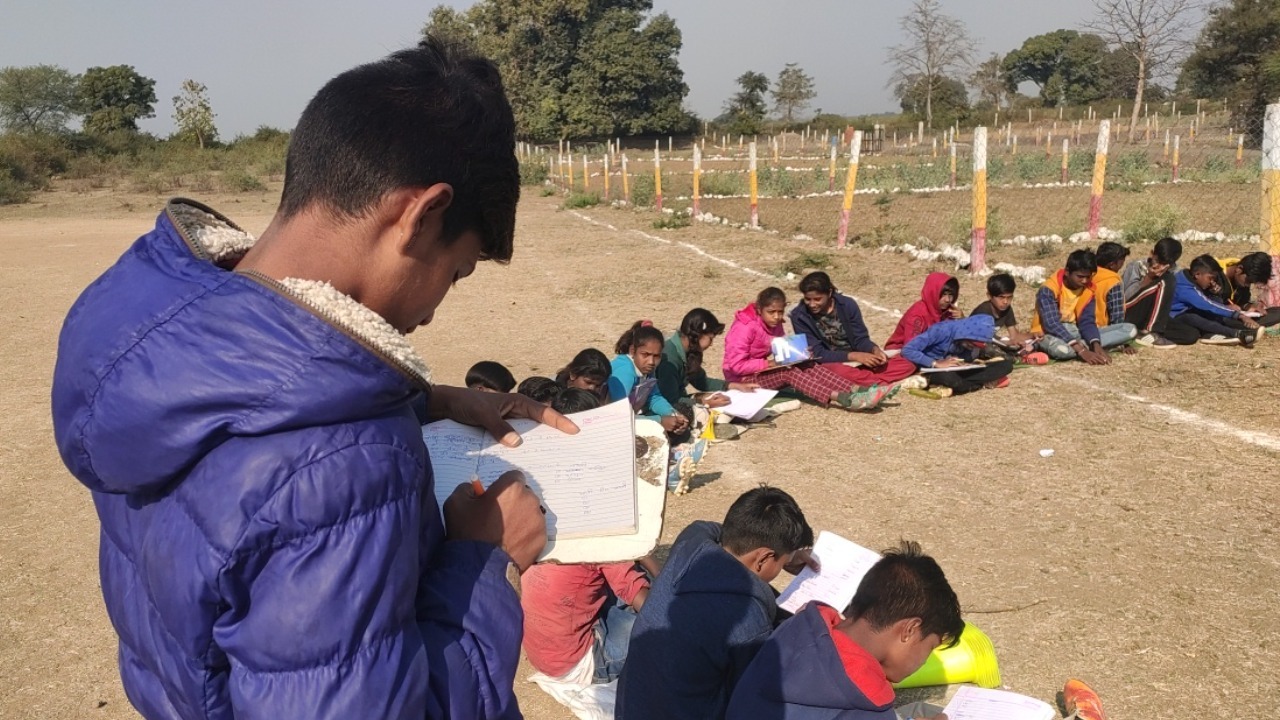
The burden of homework, no one to play with, addiction to mobile phones, fast foods, lack of safe spaces are making the lives of Children and Youth Sedentary. We need to educate them on the importance of physical activity and create the necessary bridges to cover the gap.
- We make exercising fun and enjoyable.
- conduct group fitness sessions.
- track progress through physical fitness tests.
- conduct health camps & nutrition awareness workshops.
- host fitness games & competitions.
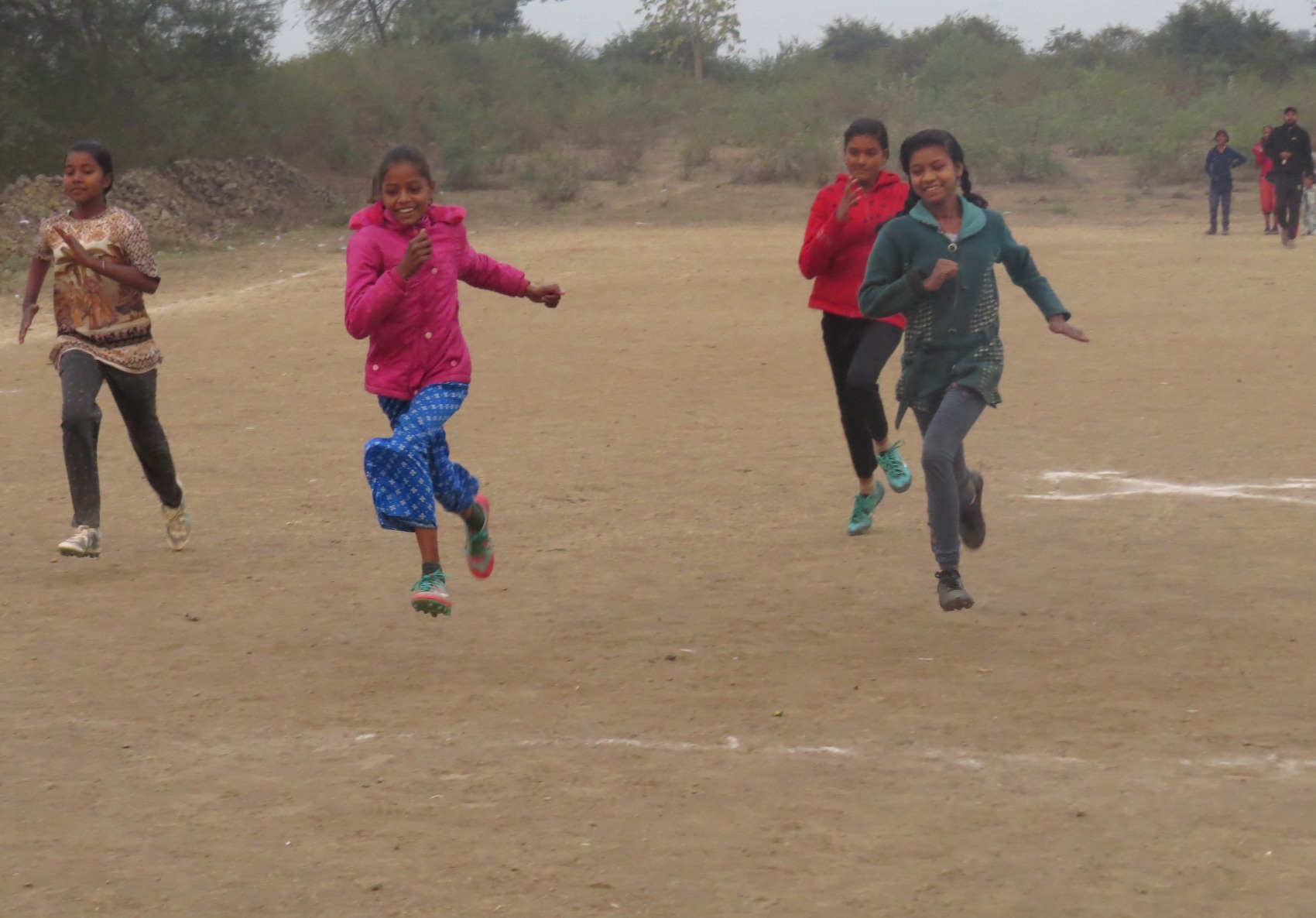
We as a society face many issues like Discrimination, Gender inequality, Fake news, Child marriage, Abuse, Tobacco, alcohol & drug addiction & Environmental issues like water, single-use plastic. We want to make young people aware and sensitive to these issues so that history doesn’t repeat itself.
We have created different games and activities to start a dialogue with children & develop a basic understanding of these issues.
To dive deeper into these complex issues, we conduct specific workshops from experts in their various fields.
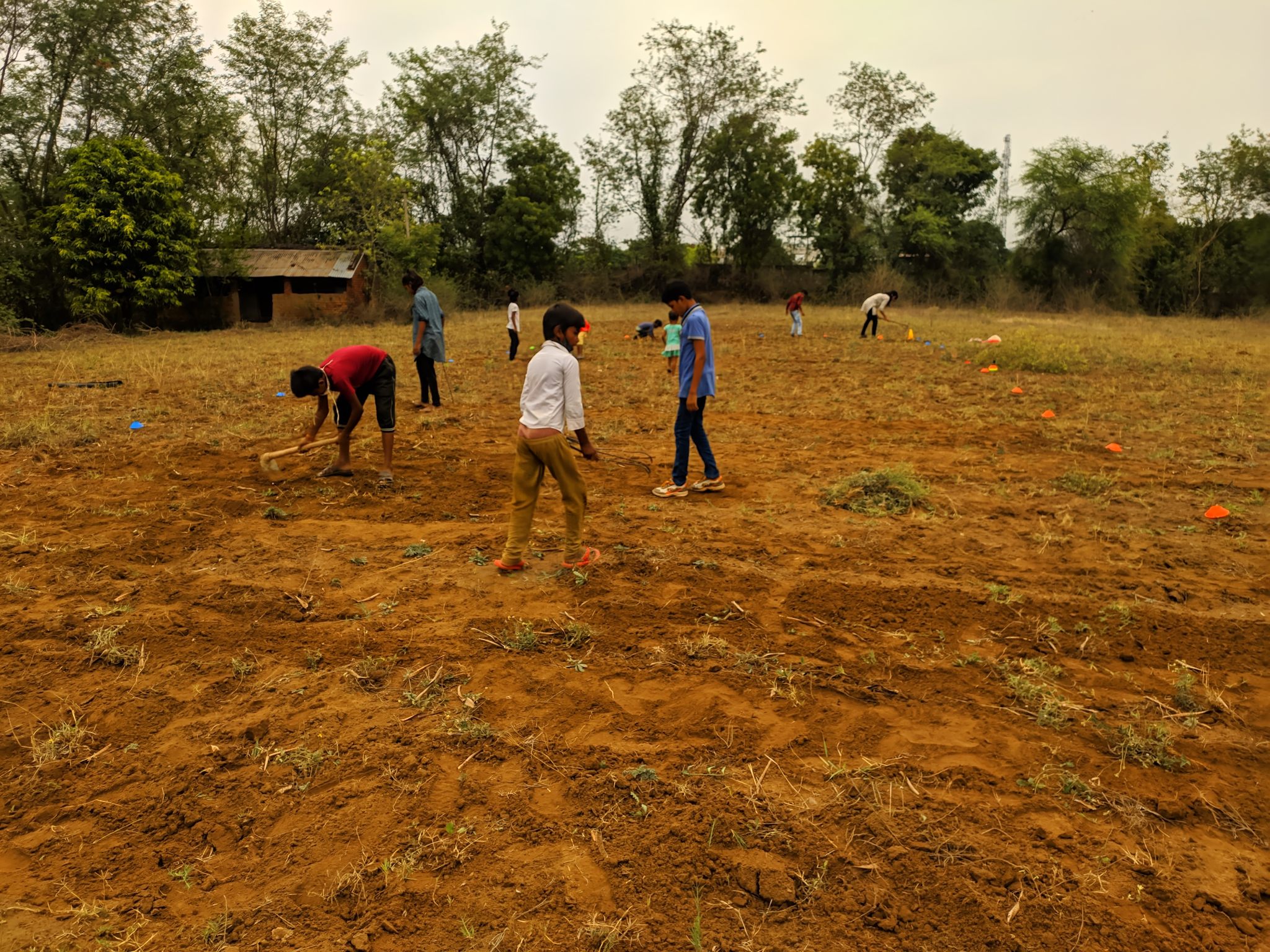
As the world was moving towards online learning, the pandemic has accelerated this process. The education systems are changing and will change drastically in the future. The children from disadvantaged backgrounds are not prepared for this change. We’ve entered an era of continuous change, and individuals need to learn continuously to thrive.
We are trying to bridge the digital gap by :
- providing mobile phones & tablets.
- teaching them how to use digital gadgets.
- introducing them to the internet.
- teaching them basic software and apps.
- showing them the way to access learning content.
English is a necessary language to access information, learn new things over the internet, and connect with different people in this new world.
Our curriculum focuses on helping the child practice sentences that they use in their everyday life. They feel interested and comfortable speaking the new language because of it. They don’t have to memorize too much, and as a result, it doesn’t become a burden for them. We use role-plays and different games to make the class engaging and fun.
The burden of homework, no one to play with, addiction to mobile phones, fast foods, lack of safe spaces are making the lives of Children and Youth Sedentary. We need to educate them on the importance of physical activity and create the necessary bridges to cover the gap.
- We make exercising fun and enjoyable.
- conduct group fitness sessions.
- track progress through physical fitness tests.
- conduct health camps & nutrition awareness workshops.
- host fitness games & competitions.
We as a society face many issues like Discrimination, Gender inequality, Fake news, Child marriage, Abuse, Tobacco, alcohol & drug addiction & Environmental issues like water, single-use plastic.
We want to make young people aware and sensitive to these issues so that history doesn’t repeat itself.
We have created different games and activities to start a dialogue with children & develop a basic understanding of these issues. To dive deeper into these complex issues, we conduct specific workshops from experts in their various fields.
As the world was moving towards online learning, the pandemic has accelerated this process. The education systems are changing and will change drastically in the future. The children from disadvantaged backgrounds are not prepared for this change. We’ve entered an era of continuous change, and individuals need to learn continuously to thrive.
We are trying to bridge the digital gap by :
- providing mobile phones & tablets.
- teaching them how to use digital gadgets.
- introducing them to the internet.
- teaching them basic software and apps.
- showing them the way to access learning content.
Our Reach
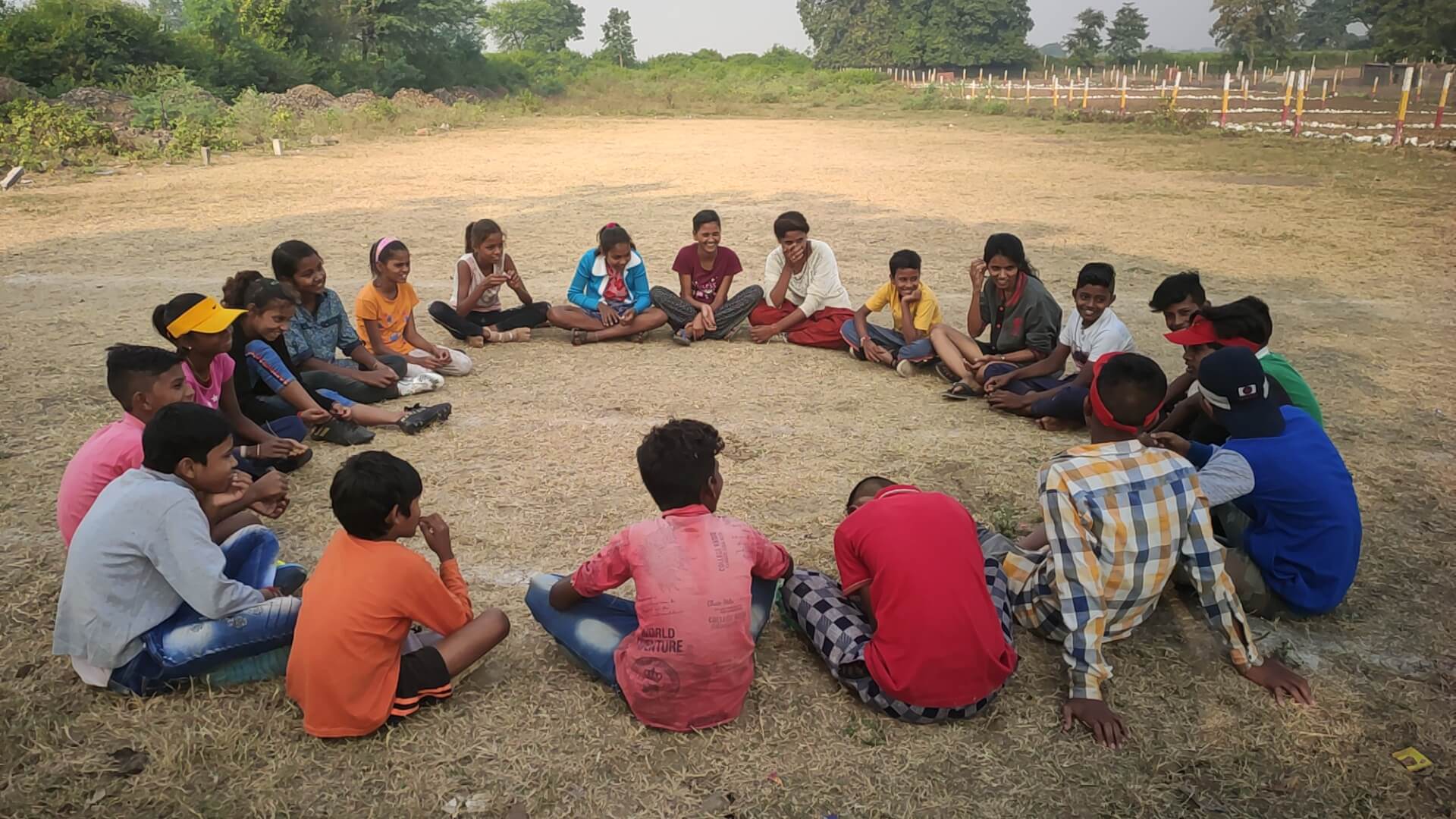

Our Team

Shraddha

Stephen
DONATE
Contact Us
Address
Napier Town, Jabalpur, M.P 482001, India



